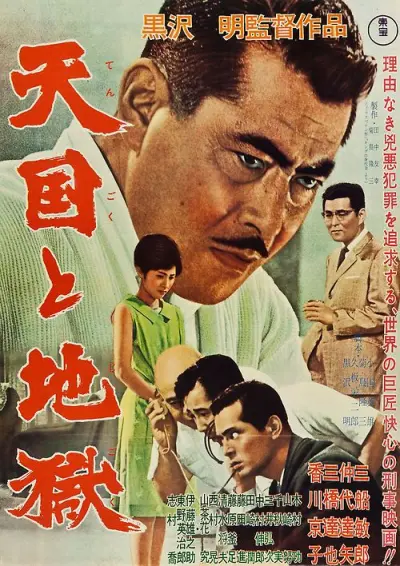
Allow me to delve into the intricacies of "Tengoku to Jigoku," better known by its international title, "High and Low." This film, directed by the iconic Akira Kurosawa, presents a compelling and intellectual narrative, interwoven with themes of ethical dilemma, societal disparity, and internal conflict.
What is the central premise of this story? The plot unfolds in the vibrant cityscape of Tokyo, where we are introduced to Kingo Gondo, the protagonist. Gondo, a distinguished executive at National Shoes, stands on the precipice of executing a hostile takeover, poised to ascend to the apex of corporate leadership. However, his world is turned upside down when a kidnapper seizes what is believed to be Gondo's son. In a harrowing twist of fate, the criminal abducts the son of Gondo's chauffeur by mistake. The ransom demand is exorbitant, and meeting it would plunge Gondo into bankruptcy, thus derailing his ambitious plan to seize control of the shoe empire.
The film transcends mere entertainment; it is an exposition of class conflict. The title "Tengoku to Jigoku," directly translating to "Heaven and Hell," brilliantly depicts the economic divide of the era. Gondo's luxurious residence situated atop a hill represents 'Heaven,' while it looms over the dense, suffocating urban environment below, referred to as 'Hell.' Kurosawa weaves a narrative that illustrates the stark contrast between the affluent and the impoverished in post-war Japan, delivering a potent message that resonates profoundly with the audience.
Diving into the core of the film's message, Gondo is confronted with an excruciating choice. Must he jeopardize his family's financial stability and his aspirations for corporate dominance? Or should he disregard the torment of his chauffeur, a man whose child's fate is uncertain? Kurosawa captures this ethical conflict with precision, inviting the audience into Gondo's internal struggle and prompting a collective introspection on the worth of a human life.
As the film progresses, it transforms into an intense police procedural. Detectives are engrossed in the search for the kidnapper. This plot pivot showcases Kurosawa's cinematic prowess, as he expertly interlaces elements of drama with those of a crime thriller. The audience is immersed in the meticulous process of detective work—each methodical examination of evidence and dogged pursuit of justice. The tension is palpable; it is a cinematic experience that leaves viewers on the edge of their seats, wishing to join the hunt for the criminal.
In summary, the influence of Japanese cinema on the global stage cannot be overstated, with Kurosawa's contributions emblematic of this impact. "High and Low" is not merely an examination of one man's ordeal; it serves as a window into the socio-economic realities of an entire era. The film's exploration of justice, sacrifice, and the ramifications of moral decisions continues to echo with relevance, transcending the decade in which it was set. In conclusion, "Tengoku to Jigoku" is an exquisite blend of human drama and cultural critique, encapsulated in a cinematic masterpiece that still captivates viewers to this day. Indeed, an impressive feat.

